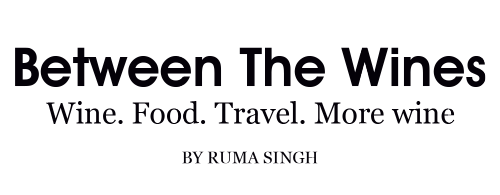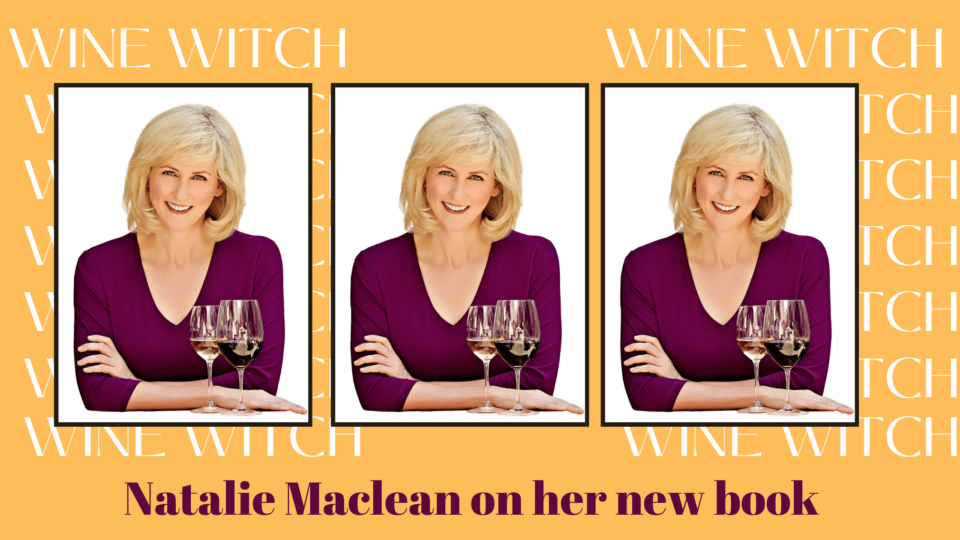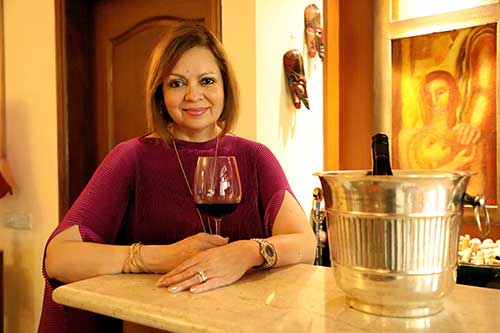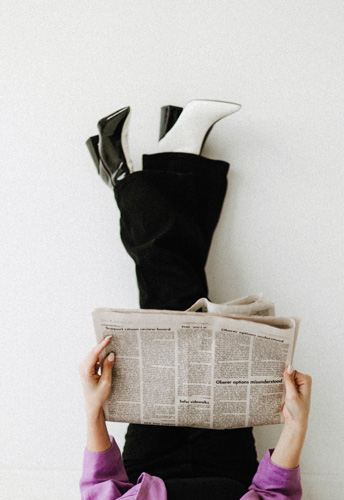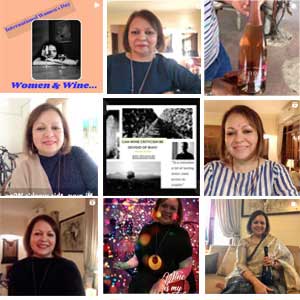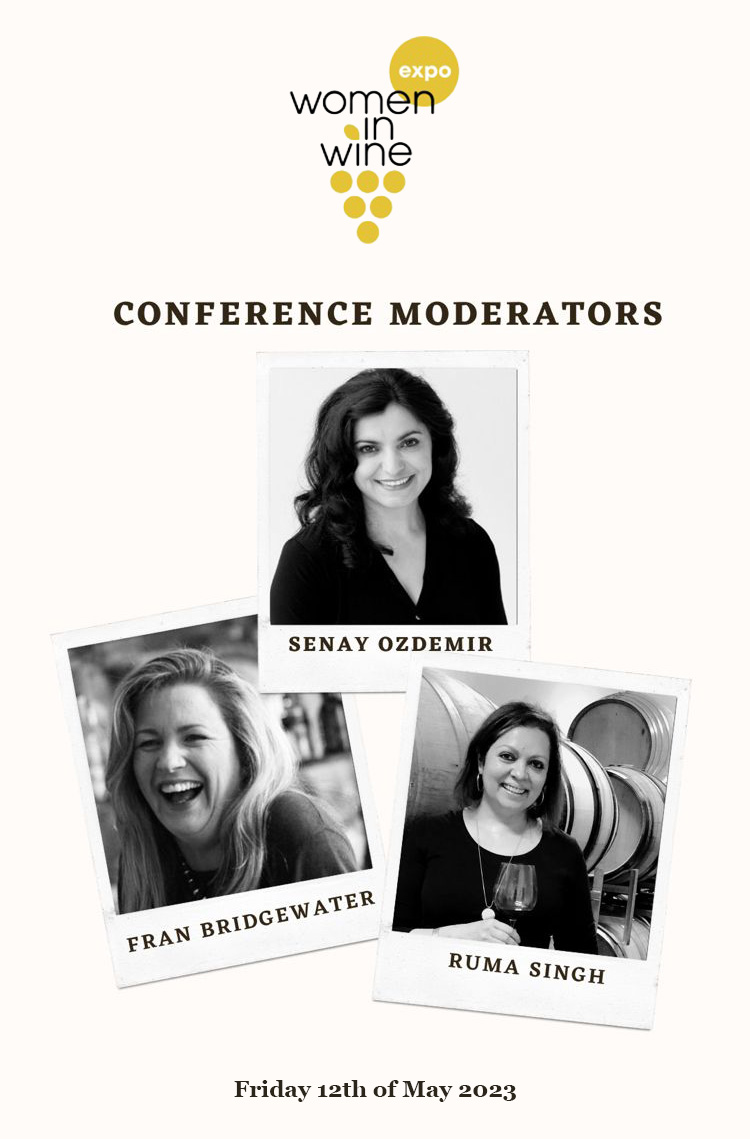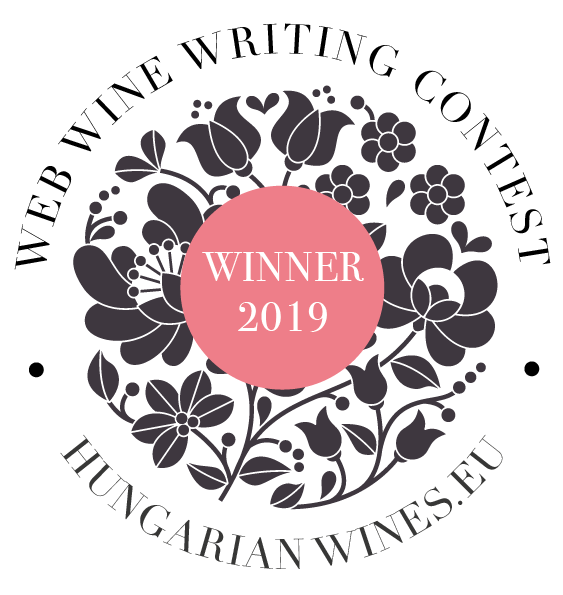‘The short and fast world of social media doesn’t leave room for nuance or complexity. Everything is black or white.’ That is how wine writer Natalie Maclean introduces her latest book, Wine Witch, in which she faces her demons head-on and attempts to put her worst controversies to rest
Natalie MacLean, drinks journalist and author, creator of the Unreserved Wine Talk podcast, has been accustomed to living in the eye of a storm, especially on social media, for over 10 long years.
At the height of her career, the Canadian writer was at the forefront of a scandal: she was accused of being a ‘content thief’ in a scandal that shook the wine world (see here).
It became a downward spiral for MacLean in her professional and personal life thereafter. Shaken by threats made to her life on Twitter, and vitriol spewed from several other wine professionals, she said her life fell apart. A descent into alcohol dependency and subsequent divorce followed.
Then in early 2022, in a remarkable show of a never-say-die spirit, she announced she was writing a book on her travails. I became one of her beta readers, and I was in turn shocked and impressed at how frankly, if very dramatically, she laid her life out for public scrutiny. The book read like a best-selling novel – indeed many aspects of her own life are close to that.
That book went on to be published and hit the bestseller charts. Its title was long and eyebrow-raising: Wine Witch on Fire: Rising from the Ashes of Divorce, Defamation and Drinking too Much: a Memoir.
I connected with MacLean to ask her some questions which were on my mind, post-publication. Despite being busy with her whistle-stop book tour, she responded, speaking openly and at length in her inimitable, forthright style.
Now that Wine Witch is out at last, what are you feeling?
I have similar empty nest feelings as I did when my son left for university. I’ve been with this book for the past ten years – worrying, writing, editing, thinking about it. It’s taken up a lot of mind space but in a satisfying way.
Now as she goes out into the world – yes, I think of the book as a person – she will travel farther than I ever could with her message of hope, justice, and resilience. Of course, she’s always welcome back home when she needs a break from the world’s chaos, but I think she’ll do just fine.
And can you explain how the journey felt like, writing your story?
MRI scans have shown that when someone who survived a near-fatal car accident reads a script to trigger those memories, their brain activity is similar to actually experiencing an accident. They’re not remembering the trauma, they’re reliving it. So first I had to get through the trauma with a lot of therapy before I could start writing this book.
Even now, ten years later, I still slip into the present tense when talking about the attacks. The body remembers what the mind wants to forget. When I scroll down through the old social media screenshots, I’m back there. My heart races, my breath catches, and dread seeps through me. The therapy continues, but I believe in Post Traumatic Growth.
And the title, provocative as it is?
You might think that from the title this is about an angry woman who drinks a lot of wine and owns a lot of cats. But it’s not.
Witches resonate with me because their strength comes from within, not from external validation. They also embody the unity of women, the power of the feminine, and the healing connection to nature. My favourite childhood stories were always about witches, both good and bad, especially The Wizard of Oz and the battling duo of Glinda the Good Witch and the Wicked Witch of the West who was unnamed in the book. I was entranced with these opposing forces that I later realized were inside me.
I even loved the straight-up badass White Witch of Narnia. Her wickedness was such a satisfying outlet for a tiny Miss Goodie Two-Shoes. I cackled inside along with her. Now, of course, I realize how damaging stereotypes of women can be, and I think it’s time to reclaim the word ‘witch’ and what it means: a wise woman who’s been through the fire and has come out on the other side stronger, wiser, fiercer.
The book was based on very deeply personal and often controversial incidents which have happened in your life – your divorce, the 2012 copyright fair use controversy, and the online verbal attacks. What made you decide to address them in Wine Witch?
Online attackers never see how the abuse adds up across different websites and social media channels. They’re aware of only the stone they throw. That’s why they often assume that they didn’t do any real damage. They justify their demonizing language because they don’t want to feel like they’re bad people. They rationalize their actions by believing the internet isn’t the real world: the person attacked can just turn it off. However, when you earn most of your living online, you can no more just turn it off than a surgeon can operate outside the hospital.
Others would say sticks and stones will break my bones, but words will never hurt me, especially when they’re online. But I had no words in response to a direct message on Twitter: “If you do not shut up, you will be raped.”
It broke me.
As my therapist explained in the book, sexually violent comments can have a real physical impact, especially on the mind.
She was right. I wanted to know who sent me that message on Twitter. Though I doubt even that would stop me from wondering if he’s behind me in the parking lot.
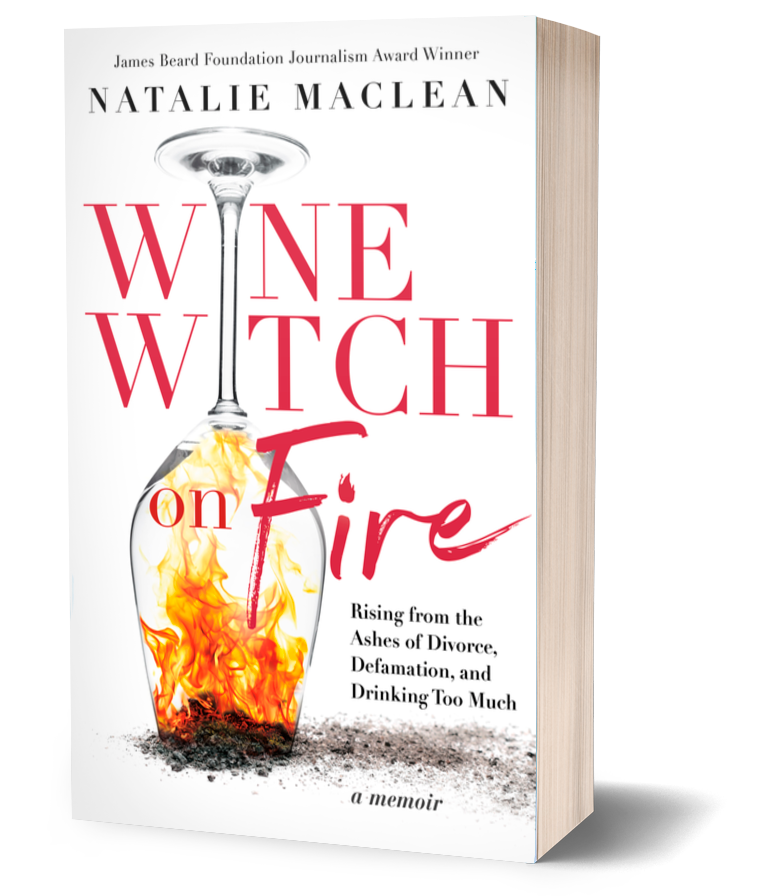
“When I scroll down through the old social media screenshots, I’m back there. My heart races, my breath catches, dread seeps through me. The therapy continues, but I believe in Post-Traumatic Growth. “
“Content theft” is perhaps the most damning phrase for a writer to hear.
Doctors lose their license for malpractice; lawyers are disbarred for misrepresentation; writers get their careers cancelled for copyright issues. “Content theft” was great clickbait. It was also groundless and defamatory.
I posted the first comment on the article to clarify that on the review page for each wine on my site, under my tasting notes, food pairings, and scores, I had a separate section labelled in large, bold font as Other Reviews. This is where I quoted reviews from the government-owned liquor store site, the LCBO. After each one was a dash with the writer’s full name and my source, the LCBO’s Vintages Wine Catalogue, to show this review was a quote and not my own.
I actually started doing this when another Google alert popped up a year before that with one of my reviews on another wine website. They had quoted it from the LCBO’s source. So being a glass half-full kinda gal, I thought, sure I’ll do that too, like Rotten Tomatoes does for movies. It never occurred to me that they might be violating my copyright as this was 2012, the heyday of content aggregators like the Huffington Post.
So that’s how it started, but something bothered me initially about the article aside from the inaccuracies. It was the first time I was reading it. Before publishing, the authors had found time to contact many other writers but not the person who was the subject of the piece. Didn’t journalists check their facts with the person they’re writing about before they publish? Couldn’t one of the six authors have reached out to me, even to give the appearance of balance? Apparently not, and then it snowballed from there, devolving into taking my body apart piece by piece in public, starting with my hair and breasts. Those comments spread to other websites around the world.
How did it affect your professional relationships going forward?
While the biggest toll had been on my mental and physical health, I also lost two magazine columns and three speaking engagements. It took five years to replace them. It took longer for the defamatory article to drop off page one of Google’s results. I’ll never know what else I lost because potential editors and event organizers searched for my name.
Google also attempts to incorporate “balance” with its algorithm. If there’s anything negative about you online, it’ll be on that first page of results, regardless of whether it’s been fact-checked. That algorithm is the modern Scarlet Letter A. We all wear it on our virtual chests. It doesn’t matter if there’s more to you than those first ten results.
The short and fast world of social media doesn’t leave room for nuance or complexity. Everything is black or white — a one-word answer to a novel. But you can’t be defined by your extreme edges. You’re not the worst thing you’ve done, nor the best thing. You’re everything in between. It’s in the grey zone that you find the shades of humanity.
Social media is an echo chamber of mindlessly forwarding falsehoods. Several bloggers, who never felt part of the inner circle of established writers, eagerly chimed in on the post. The veterans gave them virtual backslaps for their vicious comments, enjoying the fake fellowship of hating the same person. Software robots made the pile-on worse, encouraging ever-nastier comments. Social media monetizes humiliation. Then it all got packaged in news digests to my contacts on LinkedIn. That’s how one of my editors found out what was happening.
And have there been any attempts to put the controversy in the past on both sides?
Writing this book is my way of admitting and taking responsibility for my mistakes. To my knowledge, none of the men who were part of the online mobbing has said or posted anything since the book was published.
Natalie MacLean, named the World’s Best Drinks Journalist at the World Food Media Awards, has also won four James Beard Foundation Journalism Awards. She’s the author of Red, White and Drunk All Over and Unquenchable. Her new memoir Wine Witch on Fire: Rising from the Ashes of Divorce, Defamation, and Drinking Too Much recently became a national bestseller in Canada.
